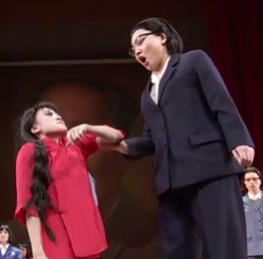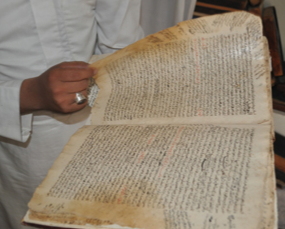
What’s the monetary value of clear air of open space within walking distance from your house? Economist Trudy Cameron seeks to develop methods that quantify the value we place on such quality-of-life intangibles.
Environmentalists have long decried traditional economics as the root of many of our environmental problems, from air pollution to urban sprawl.
Complaints stem from the basic observation that many qualities of the world don’t translate neatly into dollars and cents. What’s the monetary value, for instance, of a beautiful view or open space within walking distance from your house? Similarly, while we account for the money derived from the sale of lumber after a timber harvest, we don’t often calculate the costs of watershed damage caused by certain tree-cutting practices.
The difficulty in quantifying the value of such variables—and the fact that there are many unaccounted-for spillover effects from economic activity—leads to market failure: the inability of the market to accurately account for all the costs and benefits of an action. It’s a big part of the reason, some say, why we end up with ugly skylines, car-centric neighborhoods and polluted waterways.

Environmentalists associate market failure with popular economic practices for three reasons: the market generally fails to account for the costs of pollution, fails to represent the value of public goods (such as alternative transit or clean air) and assumes that decision-makers have complete knowledge about the costs and benefits of every action.
Trudy Cameron, who holds the prestigious Raymond F. Mikesell Professorship in Environmental and Resource Economics and is a core faculty member for the UO Environmental Studies Program, substantiates these critiques. But she stops short of blaming the problem on economic theory itself.
Certainly economic models are not accounting for all the costs and benefits that are important to us as a society, she says, but that doesn’t mean neoclassical economic theory is flawed; it only indicates a need to improve our analysis in order to track those qualities—like clean water or access to open space—that have value but aren’t being measured.
“The idea is to think about things we value, like risk reduction or free time or access to recreational sites, just like any other thing we might buy,” she said. Her research is focused on developing strategies to infer the values people place on such qualities.
Most recently she published a study with Brian Vander Naald, exploring our willingness to pay for the well-being of an edible species (not just to prevent their deaths)—a theory she tested through a survey designed to determine the extent to which people would be willing to pay more for chicken breasts from a humanely raised bird compared to a conventionally raised one. (Controlling for differences in perceived taste and healthiness, she found people are willing to pay slightly more for the better-treated chicken.)
Cameron recognizes people have a natural resistance to assigning a monetary value to qualities many would consider “priceless,” but she also believes that when it comes to making difficult policy decisions, careful benefit-cost analysis has a vital role.
“We don’t have the resources to reduce all risks, or to protect all environments,” she reasons. “We have to make funding.”
In addition to her scholarship, Cameron has served as chair of the U.S. Environmental Protection Agency Advisory Council on Clean Air Compliance and on other national boards.
—Patricia Hickson




 Watch
Watch  Watch excerpts from the opera, coming soon to Eugene.
Watch excerpts from the opera, coming soon to Eugene. 

 Three’s a charm for a living memorial.
Three’s a charm for a living memorial.